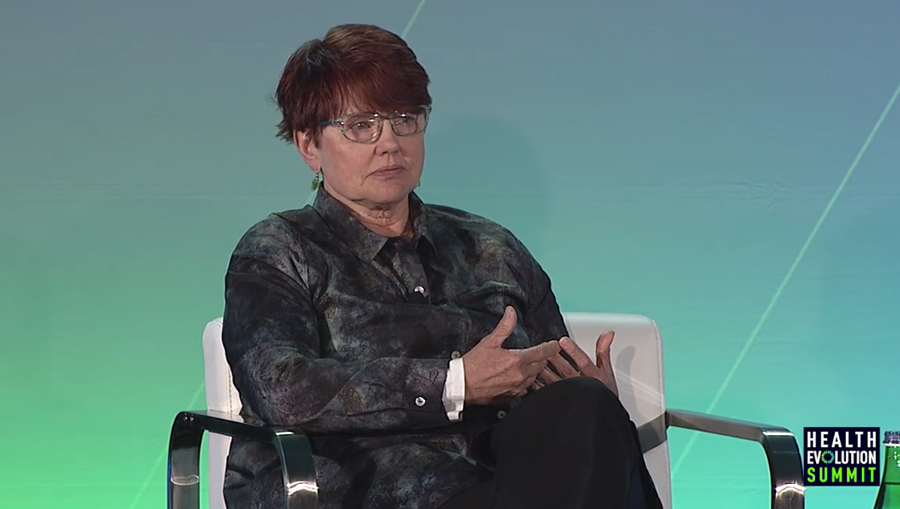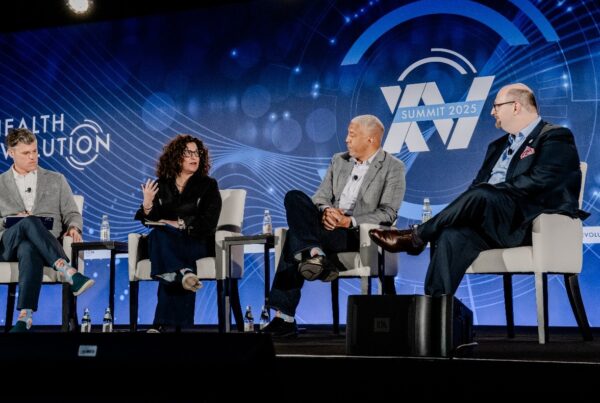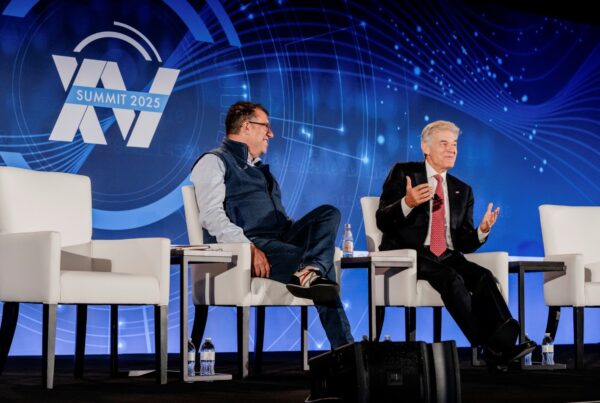When healthcare leaders encounter their organizations as patients or relatives, the system can appear quite a bit different. The efficient processes that are necessary for strong clinical and financial performance look brutally cold when observed from the perspective of a patient’s chair.
In the panel discussion, “The Personal Perspective: Experiences Within Our Own Industry” at Health Summit 2018, three health system CEOs shared their own experiences as patients or relatives of patients. They came away from these encounters with lessons they felt compelled to share.
All agreed that today’s highly scheduled workflows can leave no room for that most precious of commodities: a little human kindness.
“Technically, we do incredibly well,” said Susan Turney, MD, president and CEO at Marshfield Clinic Health System. “But we often lack that human interaction that we need to have.” Marshfield is an integrated health system in Wisconsin; it has 1,200 providers and manages its own health plan.
After observing the care that her mother received as a patient, Turney was struck by the need to make changes in her organization, which has more than 10,000 employees and 1,200 providers. Her mother was treated with all of the best clinical procedures and she had a successful outcome. But Turney was shocked to see nurses shouting at her mother who was unable to hear or see the clinicians for the simple reason that no one thought to help her put on the hearing aid and glasses at her bedside table.
“I do believe that our caregivers are truly empathetic overall,” she said. But when they are asked to click “4,000 times in an electronic health record to document care and to order procedures and to follow up with the patient,” the process becomes impersonal. And patients become disconnected from their own care.
Empathy, she said, “must be a part of every encounter.”
Soon after this experience, Turney started a dialog with her physician leadership that led to a new emphasis at Marshfield on the importance of recognizing the human side of care.

Steve Nelson, CEO Emeritus, Blue Cross Blue Shield Nebraska
“The biggest lesson that I’ve learned in all of this is you do have to teach people what it means to be empathetic,” she said. “And we need to make sure we hire for empathy. We need to make sure that we’re living out our mission, that we truly embody it and reward it.
Steve Martin, CEO Emeritus, Blue Cross and Blue Shield of Nebraska, shared his experience with the panel about a hospital visit after suffering head trauma followed by a chronic bleed.
“The neurologist came in and said, the ‘good news is we don’t have to crack your head,’ and I thought well that’s a really articulate, compassionate way to tell me how I’m doing,” Martin said.
The overall experience reminded him of his time as a nurse 40 years ago, watching nurses trying to chase down physicians for orders and arguing in front of patients. He said that even though healthcare administrators have been emphasizing teamwork for years, the same hierarchical structures remain in place.

Owen Tripp, CEO, Grand Rounds
“The patient will be caught in the middle instead of in a team-based environment. It’s still incredibly broken,” he said. “And this was a very excellent hospital, one we rate very highly. But I don’t think that my experience would’ve been any different in any other hospital.”
Advances in technology are also introducing new challenges for compassionate care.
Owen Tripp, CEO of Grand Rounds, an employer-based technology solution, brought up the question of how to inform patients when genetic tests uncover clinically significant findings that are outside the scope of the condition being treated.
Tripp was working with an organization that was doing genetic testing and the question of protocols around incidental findings was being discussed. He asked how the organization trained the staff to inform patients if the data indicated a predisposition toward a serious condition. The group’s reply: there is no protocol.
“So here you’ve got something that’s a transformative moment [being delivered] in a terrifying, isolating way,” he said, “and as a health care system, we’re not paying attention to that.”
Tripp emphasized that at Grand Rounds the clinical team has a hard and fast rule: when bad news needs to be delivered, physicians can take as much time as they need.
“You sometimes have to be prepared to say the same thing five times over because people are so shocked, that they’re just trying to get their senses back so that they can listen,” he said
Handling these moments well can help gain a patients’ trust and respect, he said. “And then you get the next opportunity to have a coaching moment with them and make sure they’re on the right path.” When that happens, “patients get better outcomes because they are ready to adhere to expert-based and evidence-based medicine.”
Health system leaders need to take the initiative, Turley said.
“We have people that work for us that want to do the right things,” she said. “They need to be recognized and then sent to do just that. I see this as a new beginning. It takes courage, you have to be tough. But if we don’t have those conversations, who’s going to have those conversations?”











